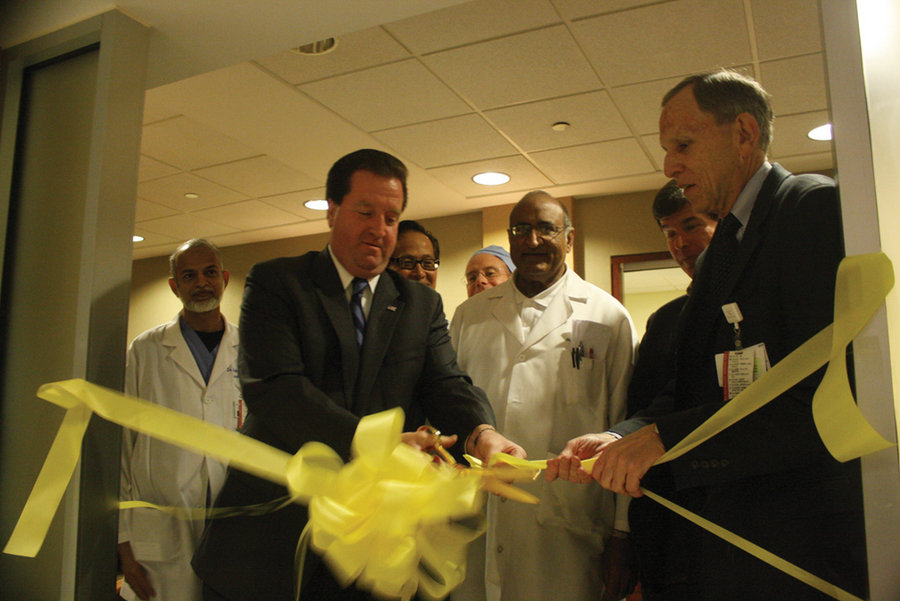Doctors, nurses, specialists, and local leaders gathered on the first floor of Bayonne Medical Center on Nov. 1 to cut the ribbon on a new PET/CT scanner, which can help diagnose heart and other ailments more accurately and in less time.
With its main part about as big as a classic Volkswagen Bug, Bayonne Medical Center’s PET/CT scanner is the latest tool in diagnosing illnesses.
“This is the only hospital-based PET scanner in Hudson County,” said BMC Executive Director Daniel Kane.
Surrounded by doctors, nurses, and technicians from the newly renovated Cardiology Center, Kane said the new PET/CT scanner will help diagnose heart problems, lung problems, cancer-related issues, and other conditions.
“This newest addition to our cardiology department will improve and save the lives of our patients.” – Dan Kane
____________
PET is most commonly used to diagnose cancer and determine how far the cancer has progressed. It is a medical device that can accurately image many organs of the body with a single pass to allow determination of malignancy. It can also provide information to determine whether a primary cancer has metastasized to other parts of the body.
PET is particularly helpful to doctors diagnosing and staging cancers such as breast cancer, colorectal cancer, head and neck cancer, esophageal cancer, lung cancer, lymphoma, melanoma, musculoskeletal tumors, ovarian cancer, and pancreatic cancer.
PET technology is frequently used for certain cardiology (heart) patients. It is also effective in assessing various neurologic diseases, such as Alzheimer’s and Parkinson’s diseases, as well as for the evaluation of stroke and epilepsy.
In regards to the heart, PET/CT imaging provides doctors with a way to assess the severity of heart disease and measure its impact on heart functioning.
“Its extraordinary ability to simultaneously view both anatomy and physiology has led to its increasing widespread use in areas of oncology, cardiology, and neurology,” Kane said, quoting a release issued by the hospital. “We will be able to deliver better patient care through improved diagnostic capability, high image sensitivity, faster scanning with lower dosing, and increase patient comfort.”
This is one of several areas of state-of-the-art improvements the hospital has made, Kane said, including advanced ultrasound and stress testing.
He thanked the specialists in the department for their dedication to the patients and their loyalty to BMC, and paid tribute to the staff of the cardiac unit who work with the cardiologists, calling them skilled and dedicated people.
“This newest addition to our cardiology department will improve and save the lives of our patients, and we look forward to this new era of leadership in diagnosing cardiology disease,” Kane said.
Long anticipated as a key element in BMC’s upgrade, the PET/CT scanner is one of many improvements made at the hospital since 2008, which include a reconstructed emergency room and establishing paperless record keeping. In October, the hospital also came to an agreement with the Federal Environmental Protection Agency to institute energy-saving and other green procedures on the hospital campus.
Mayor Mark Smith said the acquisition of the PET/CT scanner was another advancement for the hospital, noting that this continues what was started with the development of the cardiac lab earlier this year.
“Bayonne Medical Center continues it dedication to the people of Bayonne, and the hospital is a true partner in this community,” Smith said.
